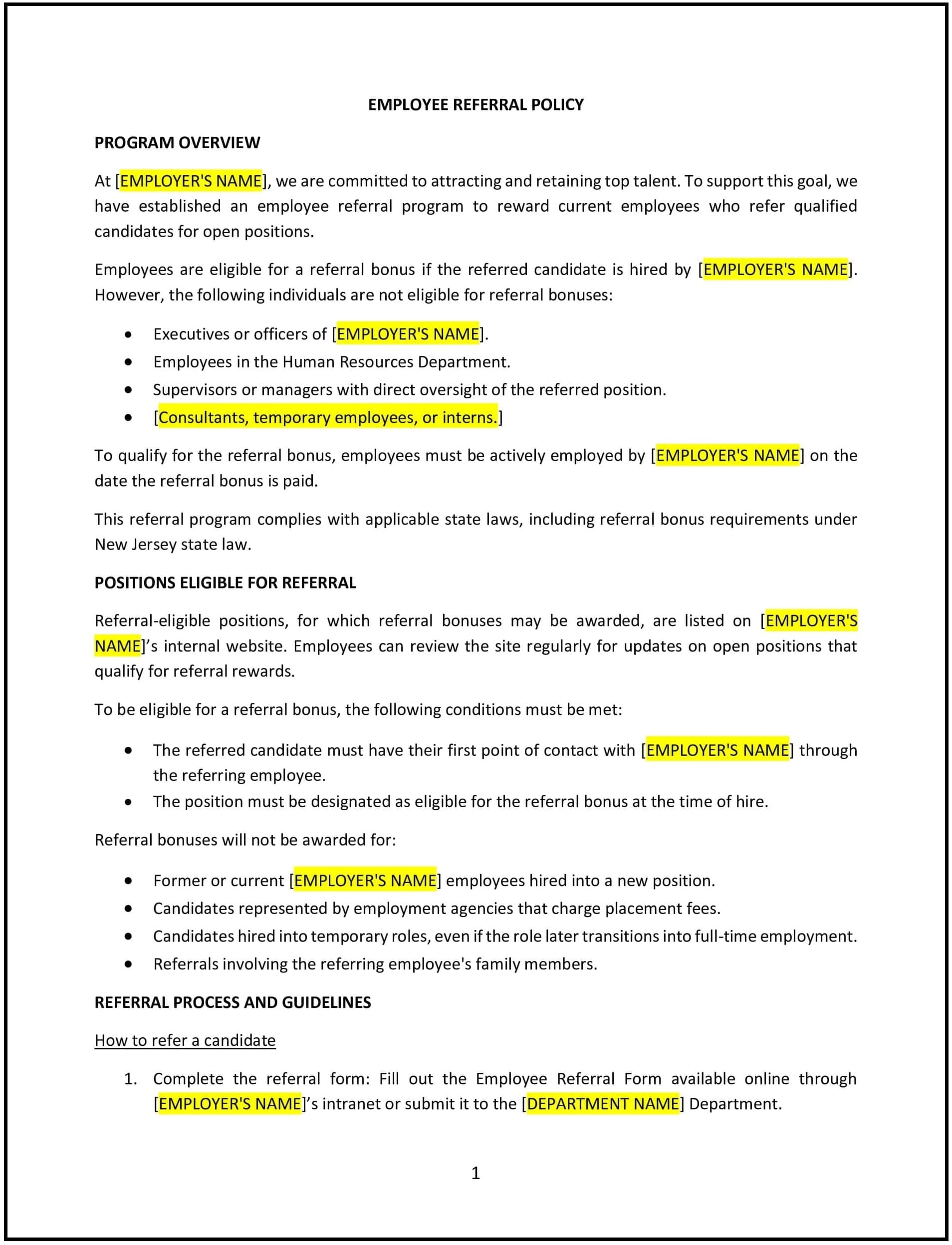Employee referral policy (New Jersey): Free template
Got contracts to review? While you're here for policies, let Cobrief make contract review effortless—start your free review now.

Customize this template for free
Employee referral policy (New Jersey)
An employee referral policy helps New Jersey businesses attract top talent by encouraging employees to refer qualified candidates for open positions. This policy outlines the referral process, eligibility requirements, and incentives for successful hires. It also sets expectations for fairness and transparency in evaluating referred candidates.
By adopting this policy, businesses in New Jersey can enhance recruitment efforts, improve employee engagement, and streamline hiring.
How to use this employee referral policy (New Jersey)
- Define eligible participants: Specify which employees can participate in the referral program and any restrictions (e.g., HR staff and hiring managers may be excluded).
- Outline the referral process: Provide instructions on how employees should submit referrals, such as through an online portal, email, or HR department.
- Establish referral incentives: Detail the rewards for successful referrals, such as bonuses, gift cards, or extra PTO, and specify payout conditions (e.g., after the new hire completes a probationary period).
- Set criteria for referrals: Define the qualifications candidates should meet, such as experience, skills, and alignment with company culture.
- Maintain fairness in hiring: Emphasize that all referrals will go through the standard hiring process and be evaluated based on merit.
- Provide a payout schedule: Clarify when referral bonuses will be issued, such as after 90 days or six months of continuous employment.
- Address multiple referrals: Explain how businesses will handle situations where multiple employees refer the same candidate.
- Review and update: Regularly assess the policy to align with hiring needs and budget considerations.
Benefits of using this employee referral policy (New Jersey)
This policy provides several benefits for New Jersey businesses:
- Improves candidate quality: Encourages referrals from trusted sources who fit the company culture.
- Reduces recruitment costs: Lowers spending on job postings and recruitment agencies.
- Speeds up the hiring process: Helps businesses fill positions faster with pre-vetted candidates.
- Increases employee engagement: Rewards employees for contributing to business growth.
- Strengthens team cohesion: Promotes workplace relationships by hiring employees’ recommended candidates.
Tips for using this employee referral policy (New Jersey)
- Communicate the policy clearly: Ensure employees understand how to participate and what incentives are available.
- Promote the program regularly: Announce referral opportunities through internal emails, meetings, and HR platforms.
- Recognize successful referrals: Publicly acknowledge employees who contribute to recruitment through referrals.
- Monitor referral effectiveness: Track the success rate of referred candidates to evaluate program impact.
- Review the policy regularly: Update the policy based on hiring trends and business needs.